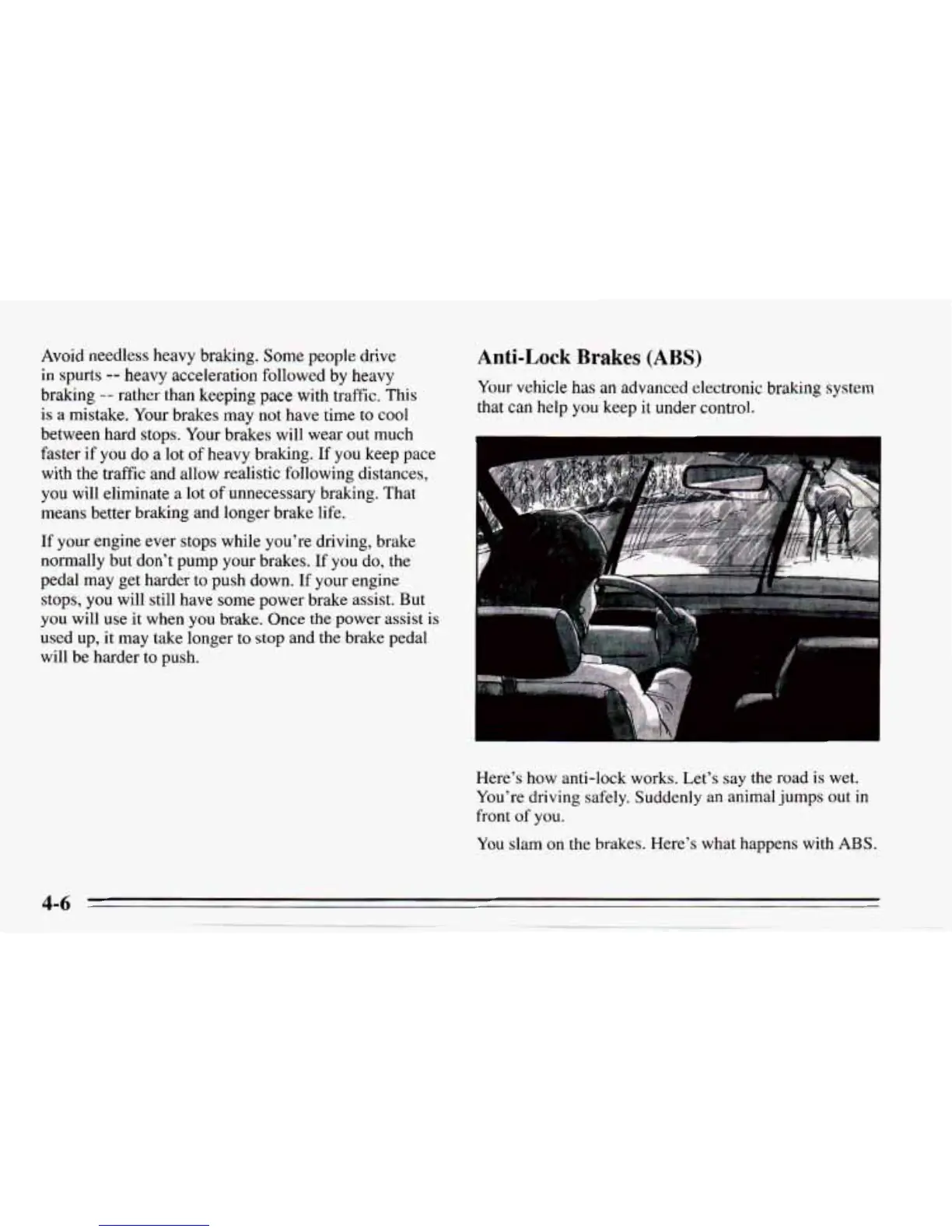Avoid needless heavy braking. Some people drive
in
spurts
--
heavy acceleration followed by heavy
braking
--
rather than keeping
pace
with traffic. This
is a mistake. Your brakes may not have time
to
cool
between hard stops. Your brakes will wear
out
much
faster if
you
do
a
lot of heavy braking. If you keep pace
with the traffic and allow realistic following distances,
you will eliminate
a
lot of unnecessary braking. That
means better braking and longer brake life.
If
your engine ever stops while you’re driving, brake
normally but don’t pump your brakes. If
you
do, the
pedal may get harder
to
push down.
If
your engine
stops, you will still have some power brake assist. But
you will
use
it when you brake.
Once
the power assist is
used up, it may take longer to stop and the brake pedal
will
be
harder to push.
Anti-Lock
Brakes
(ABS)
Your
vehicle
has
an
advanced electronic brahng system
that can help
you
keep
it
under control.
Here’s how anti-lock works. Let’s say the road is wet.
You’re driving safely. Suddenly an animal jumps out in
front
of
you.
You
slam
on
the brakes. Here’s what happens with
ABS.
